Isle of Wight sea eagles: Police decision criticised
- Published
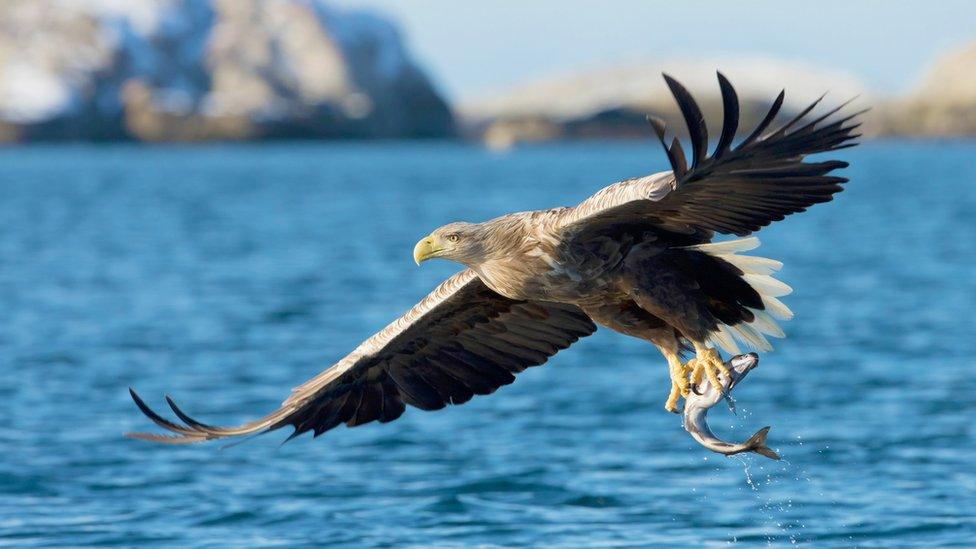
The birds, which have a wingspan of up to 2.5m (8ft), had not been recorded in England since 1780
A police decision to end an investigation into the death of a rare sea eagle was "baffling", the RSPB has said.
The white-tailed eagle, from a group reintroduced on the Isle of Wight, was found dead in Dorset on 27 January.
Dorset Police said though high levels of the poison brodifacoum were detected in the bird, it could not tell if they were due to a deliberate act.
The RSPB said ending the probe was "premature".
A police statement said tests on the carcass had proved inconclusive and it would it take no further action over the case.
The male bird - one of three found dead this year - was part of an ongoing conservation project, run by Forestry England and the Roy Dennis Wildlife Foundation.
The RSPB's global conservation director Katie-Jo Luxton said: "We are completely baffled by the decision taken by Dorset Police to end the white-tailed eagle investigation so prematurely.
"Brodifacoum - the rodent poison that killed the eagle - is highly toxic and it is clear that it was being used either incompetently or with intent to kill raptors. Either way, this is an illegal act."
Warning: This story contains an image that some readers may find upsetting
The birds are all fitted with GPS tracking devices, allowing their flight paths to be monitored.
In a statement, the Roy Dennis Wildlife Foundation said it was "very disappointed" by the poisoning.
"The satellite data indicates that the eagle, which was otherwise healthy, deteriorated and died over a period of several days.
"We hope that the death of this bird serves as a reminder of the toxicity of anticoagulant rodenticide poisons and the impacts they can have on wider wildlife."
Dorset Police insisted its investigation had been "full and proportionate".
Deputy Chief Constable Sam de Reya said: "The deliberate poisoning of a bird of prey is extremely difficult without local intelligence and information to support the investigation.
"Despite working with experts, we have been unable to confirm deliberate intent to kill this beautiful bird or identify potential offenders.
"We want to make it clear that we take any and all potential wildlife offences seriously and will act to prevent and detect offences wherever possible."
She added the force would look at any new evidence which emerged.
Dave Slater, Natural England's director for wildlife licensing and enforcement said it would continue to work with police to tackle the "scourge"of raptor persecution and bring prosecutions "where appropriate".
"This bird has clearly been poisoned. Those guilty of persecuting protected species, deliberately or recklessly, should be subject to the full force of the law," he added.
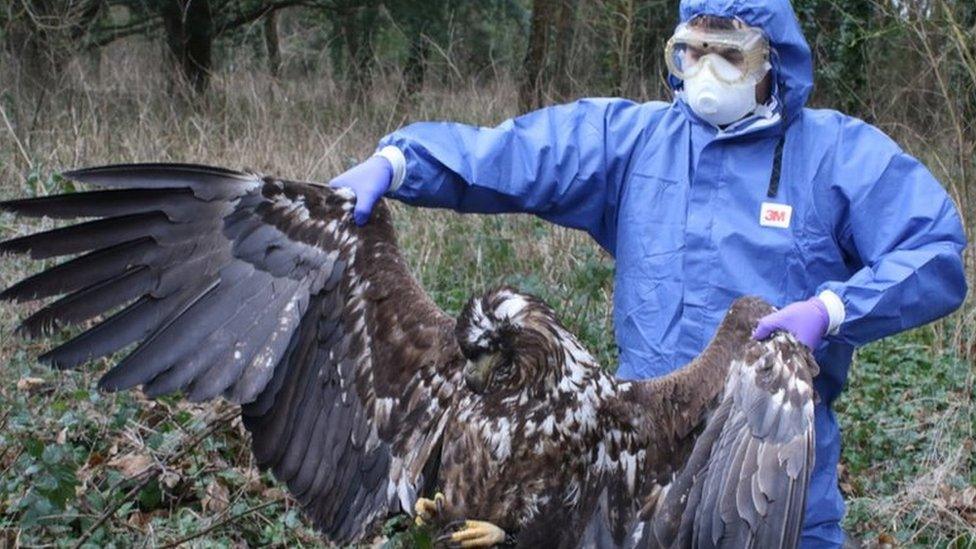
A young sea eagle was previously found dead in Dorset
Following the deaths in January, Dorset West MP Chris Loder said police should not spend time and resources on such an investigation.
He added Dorset was "not the place for eagles to be reintroduced".
His comments were described as "sinister" by TV naturalist Chris Packham.
The project started in 2019 and sees at least six birds released annually on the Isle of Wight.
They are the UK's largest bird of prey, with a wingspan of up to 8ft (2.5m).

Follow BBC South on Facebook, external, Twitter, external, or Instagram, external. Send your story ideas to south.newsonline@bbc.co.uk, external.
Related topics
- Published29 March 2022

- Published10 February 2022

- Published2 September 2021
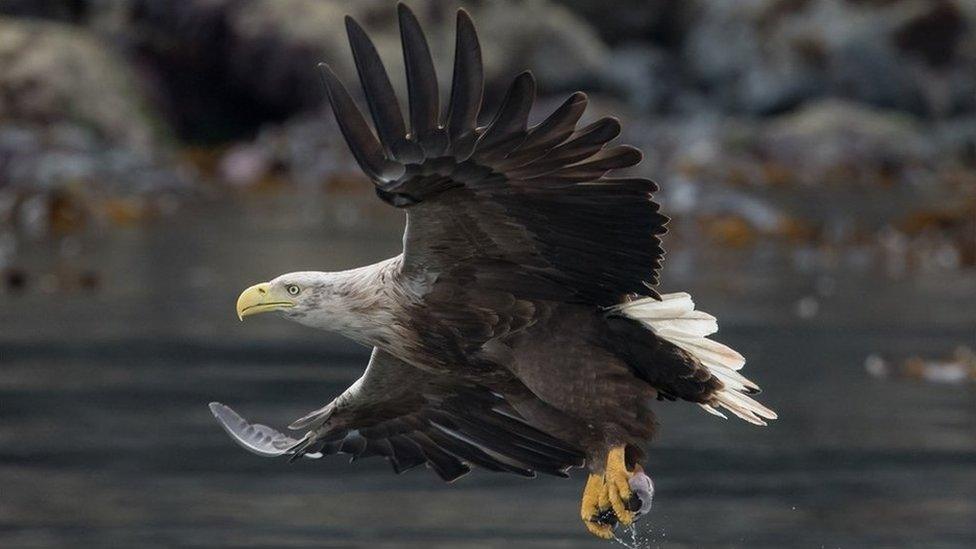
- Published10 May 2021
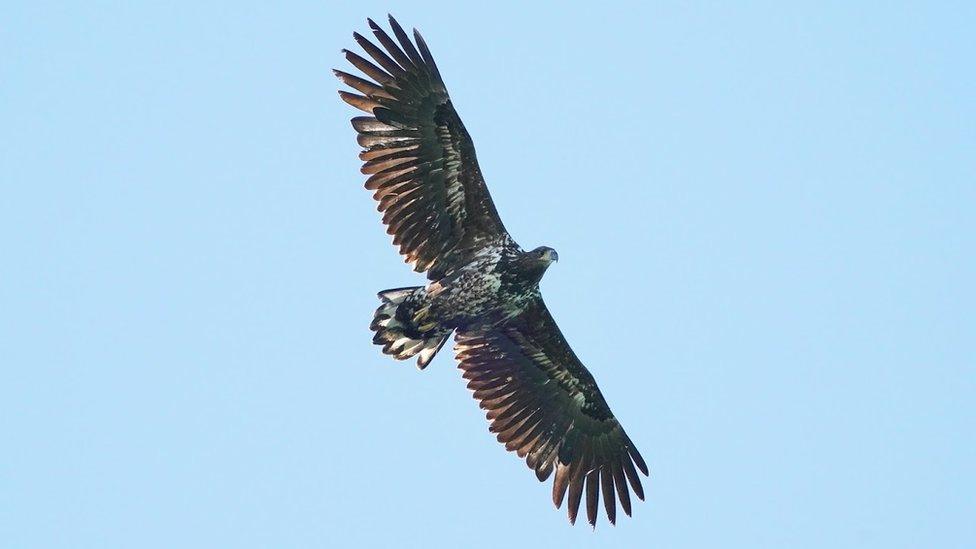
- Published7 April 2021

- Published9 February 2021

- Published4 May 2020

- Published18 January 2020
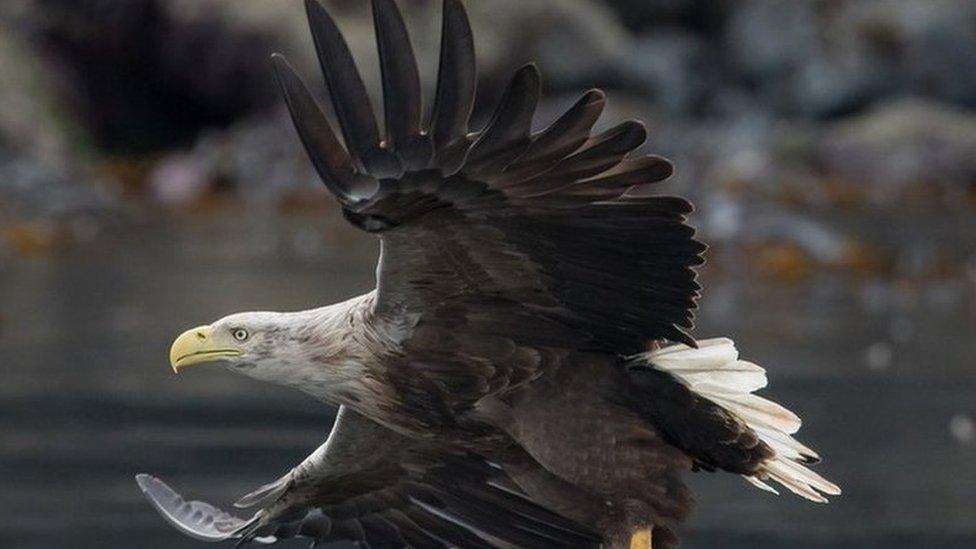
- Published24 October 2019
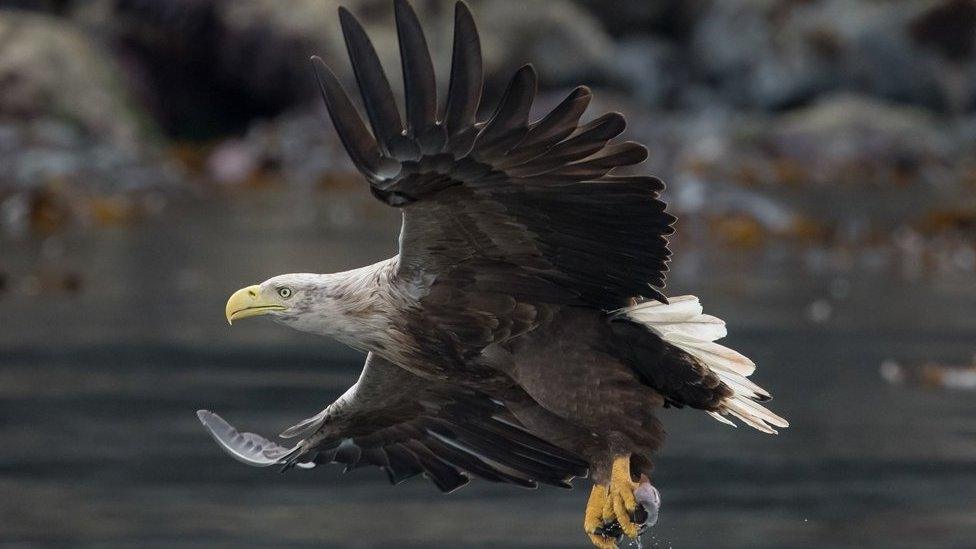
- Published22 August 2019

- Published3 April 2019
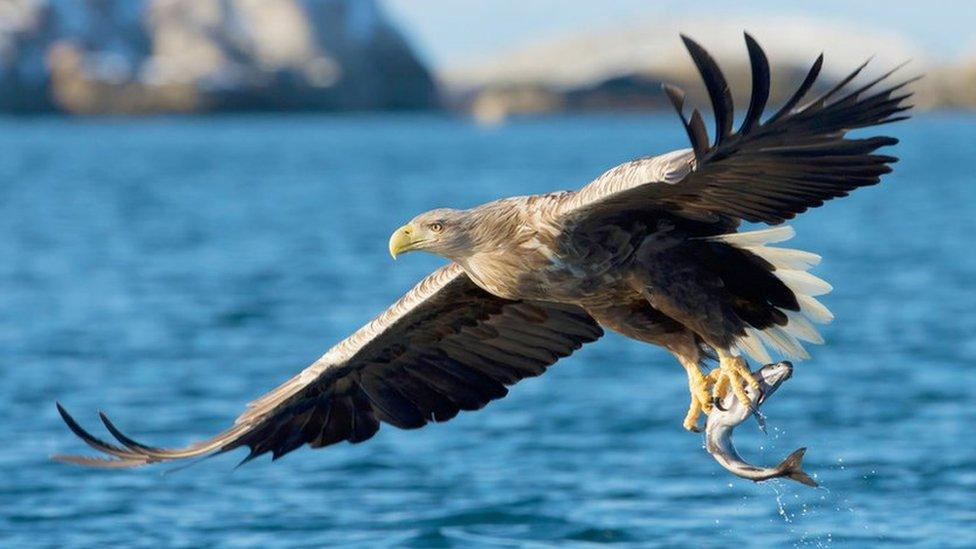
- Published2 April 2019
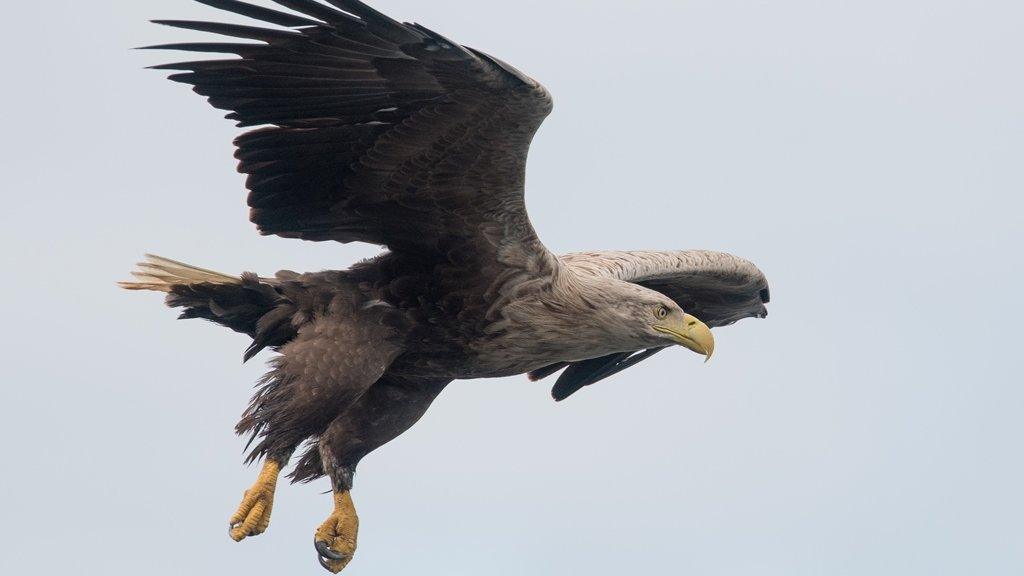
- Published20 November 2018
